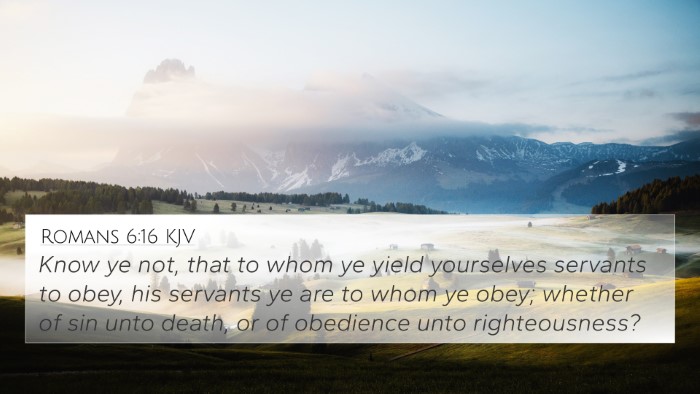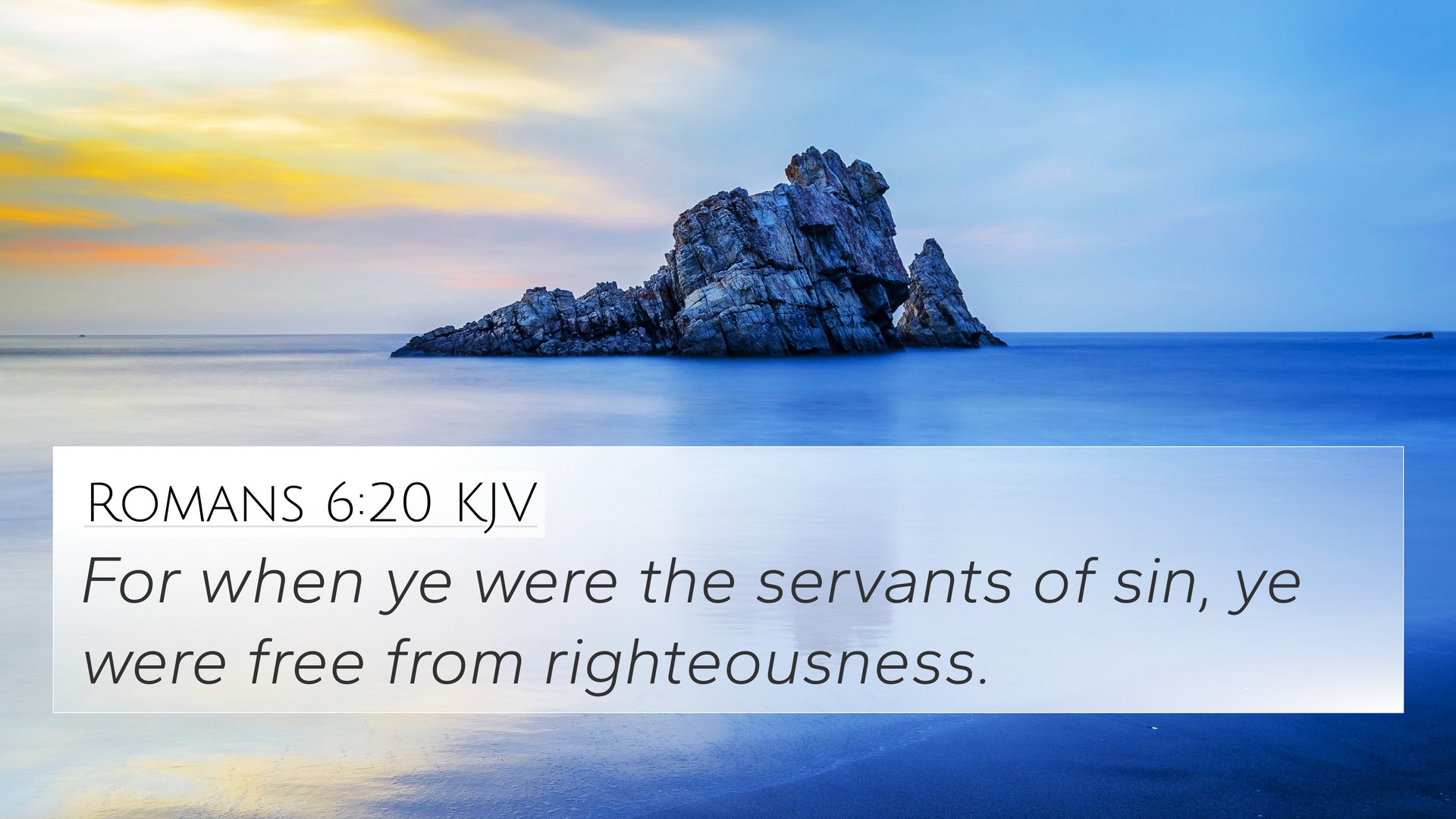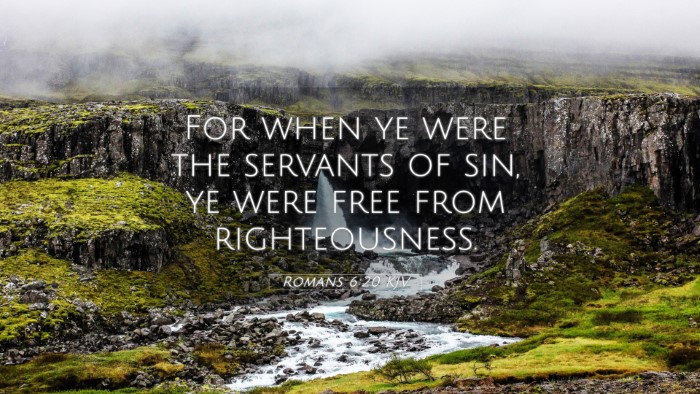Old Testament
Genesis Exodus Leviticus Numbers Deuteronomy Joshua Judges Ruth 1 Samuel 2 Samuel 1 Kings 2 Kings 1 Chronicles 2 Chronicles Ezra Nehemiah Esther Job Psalms Proverbs Ecclesiastes Song of Solomon Isaiah Jeremiah Lamentations Ezekiel Daniel Hosea Joel Amos Obadiah Jonah Micah Nahum Habakkuk Zephaniah Haggai Zechariah MalachiRomans 6:20 Similar Verses
Romans 6:20 Cross References
For when ye were the servants of sin, ye were free from righteousness.
Uncover the Rich Themes and Topics of This Bible Verse
Listed below are the Bible themes associated with Romans 6:20. We invite you to explore each theme to gain deeper insights into the Scriptures.
Romans 6:20 Cross Reference Verses
This section features a detailed cross-reference designed to enrich your understanding of the Scriptures. Below, you will find carefully selected verses that echo the themes and teachings related to Romans 6:20 KJV. Click on any image to explore detailed analyses of related Bible verses and uncover deeper theological insights.

Romans 6:16 (KJV) »
Know ye not, that to whom ye yield yourselves servants to obey, his servants ye are to whom ye obey; whether of sin unto death, or of obedience unto righteousness?

John 8:34 (KJV) »
Jesus answered them, Verily, verily, I say unto you, Whosoever committeth sin is the servant of sin.
Romans 6:20 Verse Analysis and Similar Verses
Understanding Romans 6:20
Romans 6:20: "For when you were slaves of sin, you were free in regard to righteousness." This verse encapsulates a pivotal moment in the confession of faith, illuminating the state of humanity prior to salvation.
Meaning and Interpretations
The Apostle Paul addresses the Roman believers, drawing attention to the nature of their prior existence without Christ. The phrase "slaves of sin" indicates a total subjugation by sin—captured, remaining unable to achieve true righteousness.
According to Matthew Henry, this verse emphasizes the liberty enjoyed while in sin, a false sense of freedom detached from the moral obligations to God. This creates a contrast where living in sin appears liberating but ultimately leads to spiritual bondage.
Albert Barnes notes that this passage highlights the deceptive nature of sin. While one may feel free from God's commandments when indulging in sin, there is an underlying servitude to vice—a state of moral decay without the righteousness of God to redeem it.
Adam Clarke elaborates that to be "free in regard to righteousness" suggests a separation from all moral obligations to live rightly before God. The passage serves as a reminder that the life without Christ is devoid of true virtue.
Cross-Referencing Biblical Texts
To understand Romans 6:20 more deeply, consider the following cross-references:
- John 8:34: "Jesus answered them, 'Truly, truly, I say to you, everyone who practices sin is a slave to sin.'"
- Galatians 5:1: "For freedom Christ has set us free; stand firm therefore, and do not submit again to a yoke of slavery."
- Romans 3:23: "For all have sinned and fall short of the glory of God."
- Romans 8:7: "For the mind that is set on the flesh is hostile to God, for it does not submit to God's law; indeed, it cannot."
- Ephesians 2:1-3: "And you were dead in the trespasses and sins in which you once walked, following the course of this world..."
- 2 Peter 2:19: "For whatever overcomes a person, to that he is enslaved."
- 1 John 3:8: "The reason the Son of God appeared was to destroy the works of the devil."
Thematic Connections
This verse encapsulates the overarching biblical theme of deliverance from sin and points to the transformative power of faith in Christ. The >idea of slavery to sin resonates throughout scripture and presents a profound contrast to the new life available in Christ.
Practical Applications
Understanding Romans 6:20 encourages believers to reflect on their transformation from sin to righteousness:
- Recognize the futility of living in sin.
- Embrace the freedom offered through Jesus Christ.
- Engage in a lifestyle that produces fruits of righteousness.
Conclusion
Romans 6:20 serves as a critical reminder of the pre-conversion state of sin contrasted with the enabling grace of God to live rightly. The connections between this and other scriptures deepen our comprehension of true freedom in Christ and the abandonment of our former ways, fostering a life of righteousness guided by the Spirit.


